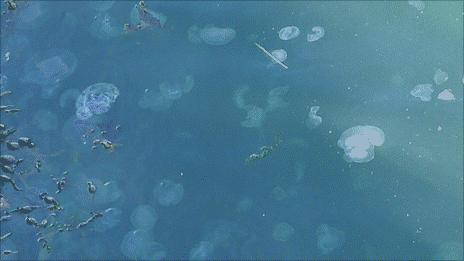How dangerous are Britain's jellyfish?
- Published
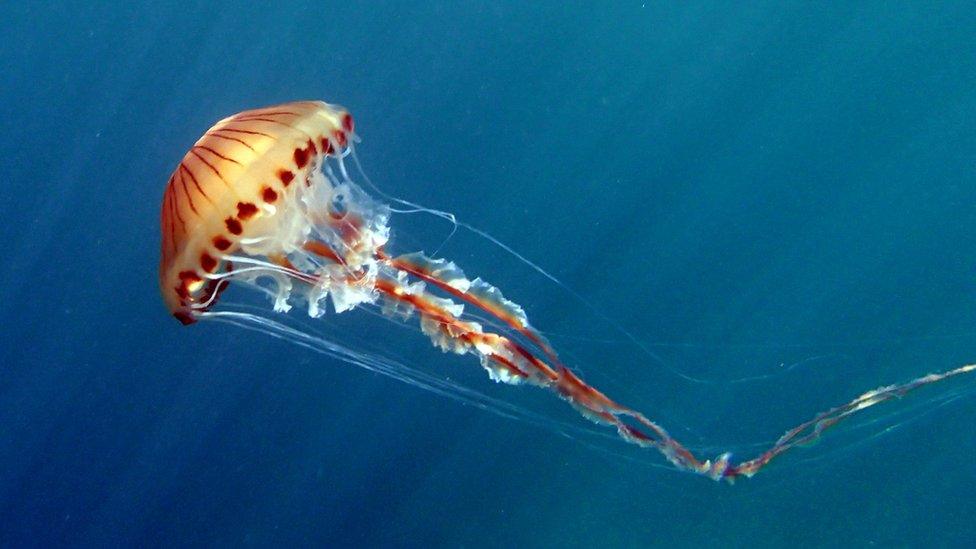
Compass jellyfish are among several varieties found in waters around the UK
When jellyfish are washed up on British beaches, they can provoke reactions ranging from curiosity to outright fear.
As thousands of families head to the coast this summer, is that fear is justified? Just how dangerous are UK jellyfish?
Dr Peter Richardson, the head of biodiversity and fisheries at the Marine Conservation Society, had a short answer to our query: "Not very".
As far as he is aware, no one has ever died from a jellyfish sting in the UK - but plenty have had a nasty shock.
And the charity, which has recently launched a nationwide survey of jellyfish, external, has urged beachcombers not to touch the animals.

What happens if a jellyfish stings you?
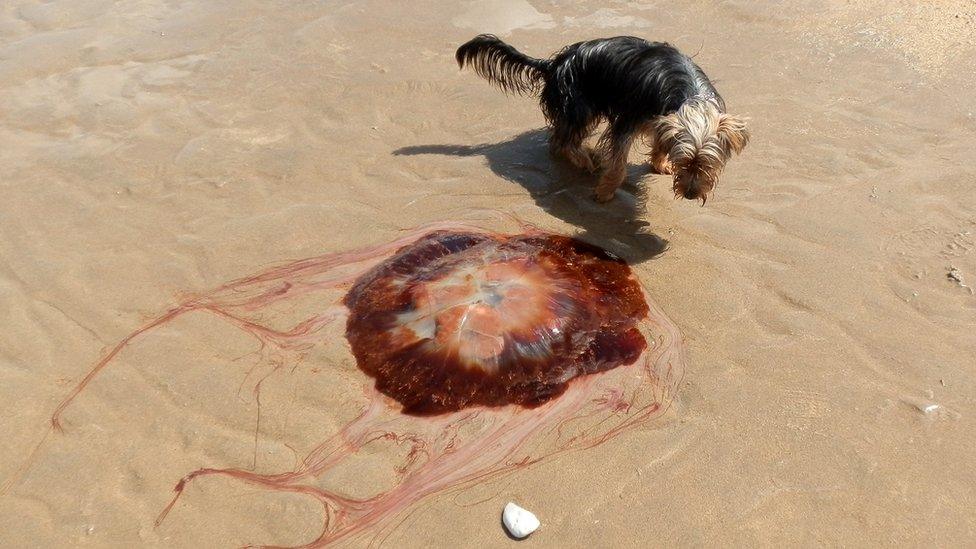
The Lion's Mane jellyfish can give an "electric shock" like sting
It really depends on what kind of jellyfish, external you have crossed.
Among the worst offenders are the Portuguese man-of-war, which is not really a jellyfish but a "floating colony of hydrozoans".
It has been responsible for deaths overseas but it is rare in the UK and if it is spotted, it should be reported to the local authorities.
But more common in British waters are the Mauve Stinger and Lion's Mane - both of which can give "electric shock" like stings.
"No one has been fatally stung by the Lion's Mane in the UK, apart from in a Sherlock Holmes' story," said Dr Richardson.
Nettle sting
Some fishermen with hard, calloused hands have found that they don't tend to feel the stings of the Lion's Mane.
Dr Richardson said: "In recent years they have occurred in quite large numbers particularly on the north-east coast of Scotland.
"Fishermen in Caithness were finding that their nets were being inundated with them. They don't tend to feel stings on their hands but on their face it hurts."
Others deal out a less painful shock - Dr Richardson compared the stings of blue and compass jellyfish to that of a nettle.

Can a jellyfish sting when it is dead?
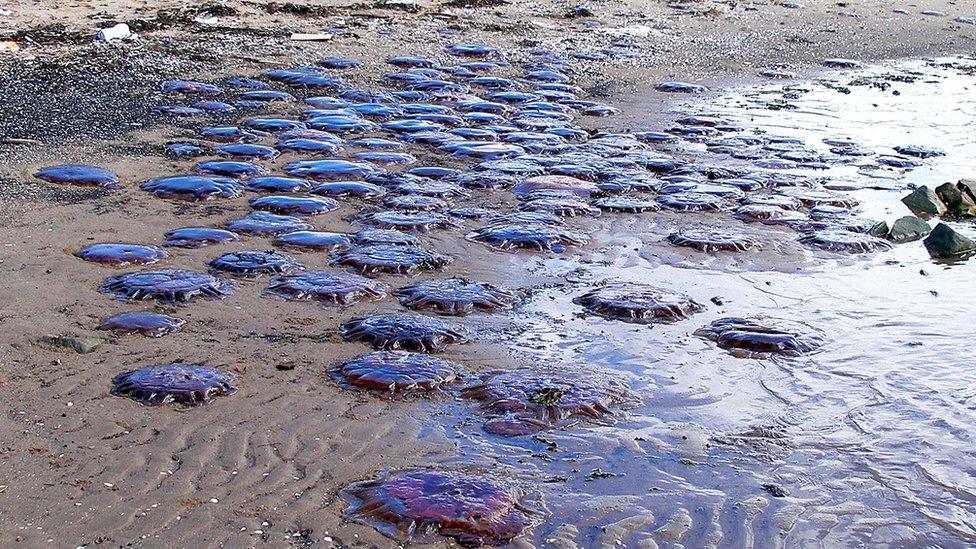
Lion's Mane jellyfish were spotted on a beach at Prestwick
When a jellyfish is washed up on a beach and exposed to the wind and sun, the relatively fragile creatures are unlikely to live long.
Only the Barrell jellyfish - the "Arnold Schwarzenegger of jellyfish", according to Dr Richardson - can realistically survive a stranding without dehydrating.
But - dead or alive - if their tentacles are wet, jellyfish can still sting.
"So long as it's still hydrated, even if the jellyfish isn't alive, the sting cells can still fire off," said Dr Richardson.

Why do jellyfish sting?
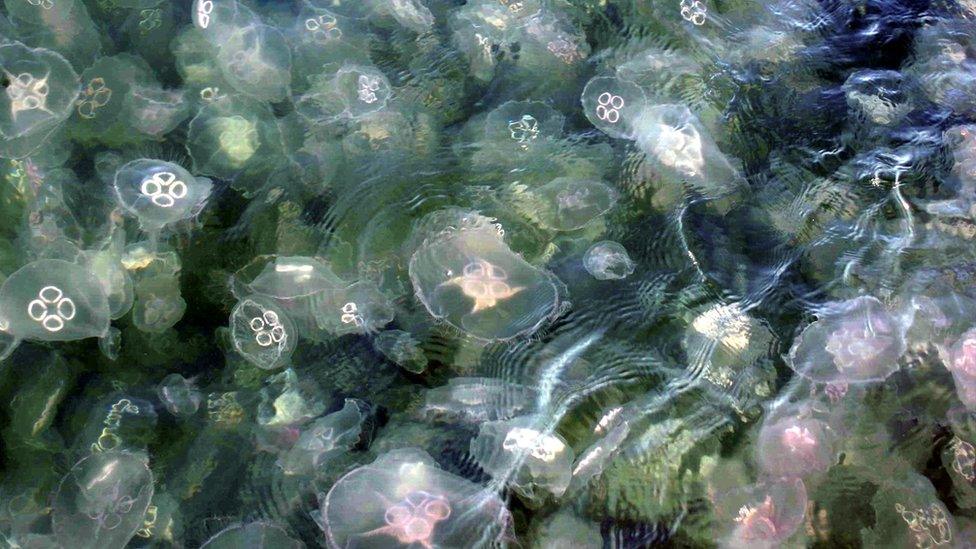
Moon jellyfish give off a mild sting
Jellyfish use their stings to defend themselves from predators and to attack smaller creatures.
The sting is "like a little harpoon with a coiled spring behind it", said Dr Richardson. "The harpoon has the toxin in it - and it can paralyse a small animal."
But it can't always defend itself from predators like leatherback turtles, ocean sun fish and gulls.
Turtles migrate from the east coast of the US and the Caribbean and they time their arrival to coincide with jelly fish blooms.
And gulls attack them from the surface of the water, therefore avoiding their stinging tentacles.

How do you treat a jellyfish sting?
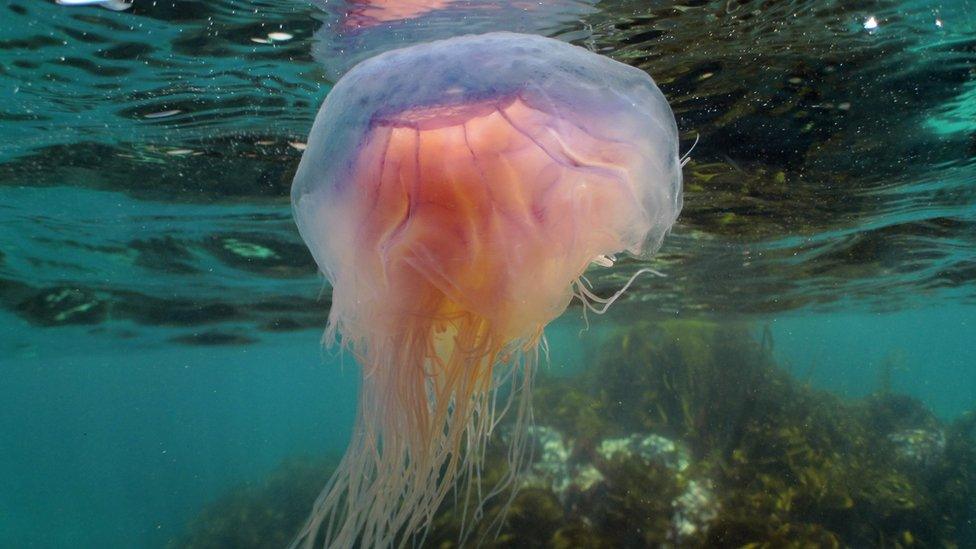
The sting of a blue jellyfish is similar to a nettle sting
In one famous episode of Friends, Chandler urinated on Monica after she suffered a painful jellyfish sting.
But that, according to Dr Richardson, is not a medically recognised remedy - in fact it is "rubbish", he said.
Instead, he said it was important to remove the tentacles as soon as possible - as they will continue to sting while they are attached to the body.
His advice is supported by the NHS, which recommends using tweezers or a clean stick, and gloves if possible, to remove them, external.
A heat pack or immersion in hot water can reduce pain and swelling, and painkillers such a paracetamol could also help.
If symptoms become more severe, or a sensitive part of the body has been stung, you should seek medical help.

- Published16 December 2014
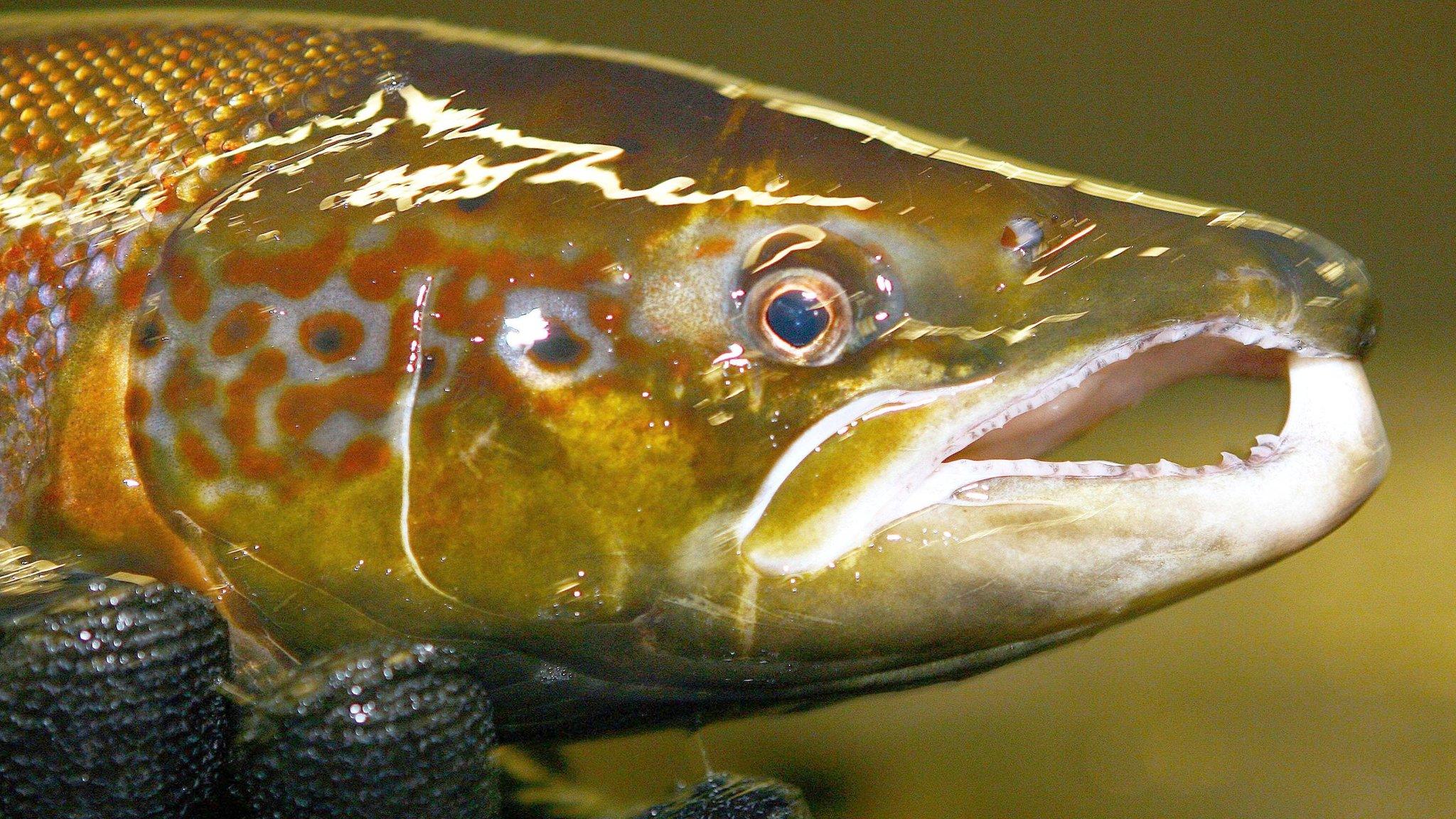
- Published30 June 2011
